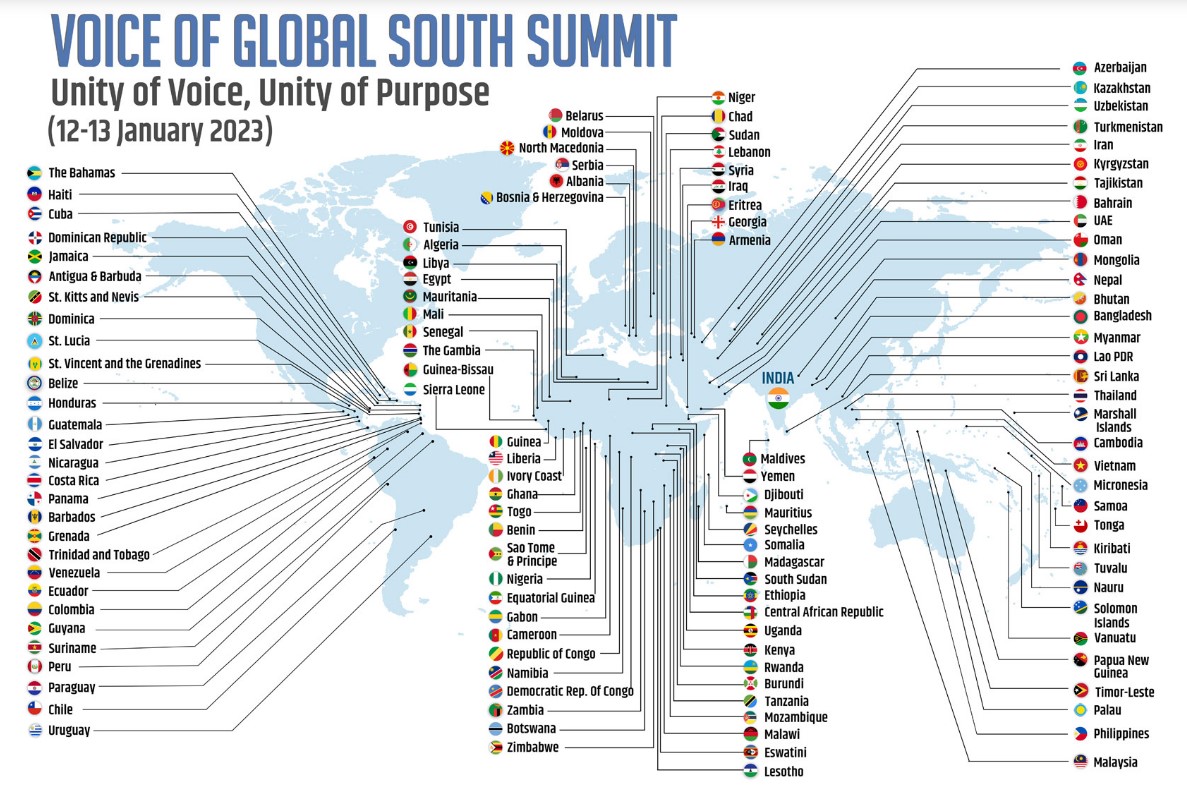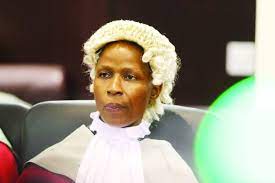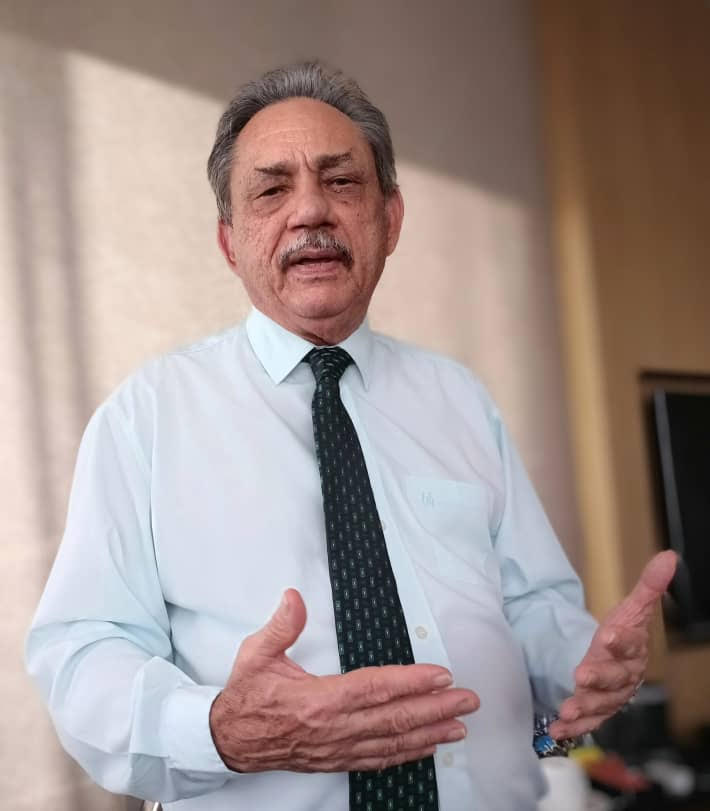
by Ambassador (Retd.) Asoke Mukerji
The United Nations General Assembly (UNGA) is scheduled to convene for a “Summit of the Future” in New York on 22-23 September 2024.
The outcome of this meeting of world leaders will be the adoption of a “Pact for the Future”. During the past year, the details of the Pact have been discussed among the 193 UN member-states under the co-facilitation of Germany (representing the developed countries of the North) and Namibia (representing the developing countries of the South).

The objective of the Pact is “to safeguard the future for present and coming generations”.
India’s approach towards the UN’s Summit of the Future was articulated by Indian External Affairs Minister Dr. Subrahmanyam Jaishankar in 2023. He emphasized the need to demonstrate “genuine solidarity” to generate “real trust” and integrate the “sentiment of the Global South” in preparing for the Summit.
During the discussions in the UNGA in May 2024, India cautioned that if these essential elements were missing from the process, the Summit of the Future would become a “Summit of the Past”, condemning the United Nations “to a perilous vicious cycle of fading into irrelevance.”
The Global South consists of developing country member-states of the UNGA, many of them former colonies of European powers in 1945 who did not negotiate the UN Charter. Their membership of the United Nations began with the historic process of decolonization that began after India’s independence from British colonial rule in August 1947.
The Global South became a majority in the UNGA, propelled by the Decolonization Resolution of December 1960. The first visible expression of solidarity of the Global South in multilateralism was the successful adoption by a two-third majority vote of UNGA resolutions in December 1963 to amend the UN Charter.
These amendments resulted in expanding the representation of the Global South in the UN Security Council (UNSC) that controls decisions on peace and security, and the Economic and Social Council (ECOSOC) that controls UNGA decision-making on socio-economic issues.
Since 1960, the process of consolidation and prioritization of Global South priorities has been marked by several negotiating landmarks in multilateral institutions. This was due to the solidarity and sentiment of the Global South, based on trust in the effective and equitable functioning of the interlinked post-war multilateral system.
Among the Global South’s achievements have been the creation of the Non-Aligned Movement (NAM) in September 1961 which today brings together 120 member-states in the UNGA; the establishment of the Group of 77 (or G-77) in 1964 which today represents 134 out of 193 member-states in the UNGA; the creation of the UN Development Programme (UNDP) by the UNGA in 1965; the adoption of the G-77 Charter of Algiers in 1967 calling for a New International Economic Order; the Decision on Differential and More Preferable Treatment (also known as the Enabling Clause) for developing countries in the General Agreement on Tariffs and Trade (precursor of the World Trade Organization) in 1979; the UNGA Declaration on the Right to Development (DRTD) as an inalienable human right in 1986; and the Common but Differentiated Responsibility (CBDR) provision of international law, codified by the UN Conference on Environment and Development in 1992.
Through patient and forward-looking negotiations in the UNGA between 1960-2015, the Global South/G-77 has succeeded in bringing “development” into the mainstream of multilateralism. The unanimous adoption of Agenda 2030 by the UNGA in September 2015, with its 17 Sustainable Developmental Goals (SDGs) is an acknowledgement of this fact.
Agenda 2030 converges the common interests of the Global North and Global South into an integrated human-centric framework, in which peace, security, and development are interlinked. This is the sentiment that the Global South seeks to integrate into the vision of the Summit of the Future.
The UN’s SDG Summit in 2023 held to assess the implementation of Agenda 2030 warned that “numerous crises” since 2015 were derailing this vision. Three broad trends may be seen as contributing to these crises.
The first is a revival of the North-South divide, which undermines trust in the equitable functioning of multilateral institutions. During the Covid pandemic the World Health Organization was unable to ensure the adequate supply of vaccines to the Global South, due to stockpiling in the Global North.
The World Trade Organization was forced by the Global North’s dominant hold on intellectual property rights on vaccines to postpone a decision on waiving these rights to enable manufacture of vaccines in the Global South.
The second is an increasing recourse to the use of armed force, instead of diplomatic negotiations, to resolve conflicts. The ineffectiveness and inadequacy of the UNSC’s authority due to the veto power of the P5 (five permanent members) has been exposed by the large-scale human suffering and destruction in the violent conflicts caused by the use of armed force in recent years.
Even existing unanimous resolutions of the UNSC for the political settlement of conflicts such as Afghanistan (UNSCR 2513), Ukraine (UNSCR 2202), and Palestine/Israel (UNSCRs 242, 1860) have not been enforced.
A corollary to this is a gradual usurpation of UN Charter provisions for enforcing UNSC decisions, such as economic sanctions and use of armed force, by non-UN bodies like the North Atlantic Treaty Organization (NATO). This impacts directly on peace, security, and development in the Global South.
The third is the weaponization of interdependent economic interlinkages, which have been painstakingly negotiated on the basis of agreed principles of special and differential treatment, as listed above, by the Global South in multilateral institutions and specialized bodies.
A powerful combination of governments and corporations based in the Global North have actively sought to circumvent these interlinkages through the extra-territorial application of their domestic laws and policies.
This has implications for the sovereign participation of the countries of the Global South in multilateral cooperation. It has also tangible increased socio-economic costs on the implementation of Agenda 2030.
Unless checked, these three trends can have a deleterious impact on the Global South, particularly on the application in a human-centric manner of new digital technologies to accelerate the implementation of Agenda 2030.
The Summit of the Future’s consideration of a Global Digital Compact requires special attention to these sentiments of the Global South, in order to bridge existing digital divides enumerated during the UNGA review of the UN’s Tunis Agenda on an Information Society in December 2015.
At the 75th anniversary meeting of the United Nations in 2020, India’s Prime Minister Narendra Modi had emphasized:
“We cannot fight today’s challenges with outdated structures. Without comprehensive reforms, the UN faces a crisis of confidence. In today’s interconnected world, we need a reformed multilateralism—that reflects today’s realities, gives voice to all stakeholders, addresses contemporary challenges and focuses on human welfare.”
This is the reason why the Global South’s focus during the Summit of the Future must be to seek effective multilateralism on the ground. A decision to convene a UN General Conference, as provided for in Article 109 of the UN Charter, to review the UN Charter in September 2025 would be an appropriate way to mark the 80th anniversary of multilateralism by integrating the aspirations of the Global South.









